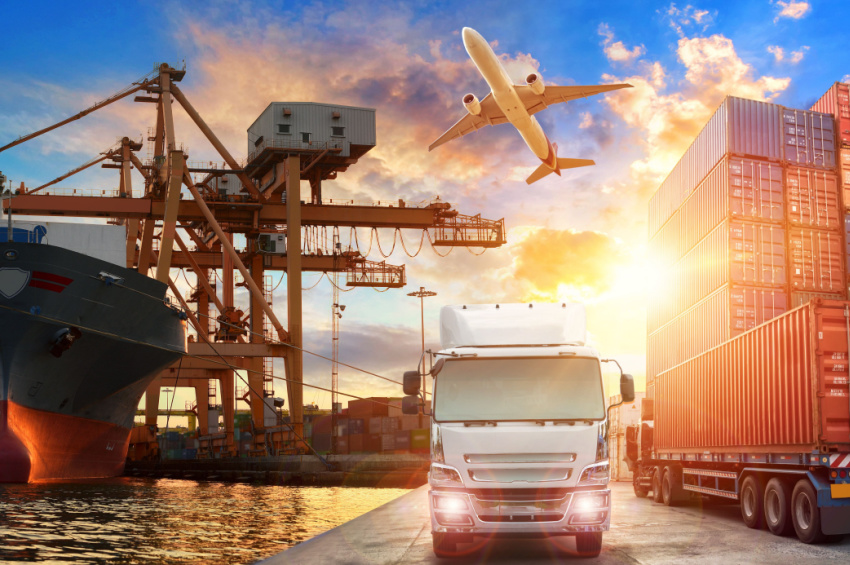The current limitations in the supply chain have shone a spotlight on the importance of international trade. But let’s face it, without well-oiled machinery and sufficient funds; trade just can’t flow. That’s where “trade finance” comes in, providing financial products and services to ease commerce’s wheels. Did you know that up to 80% of global trade is funded by credit? However, coverage varies wildly, with SMEs, in particular, struggling to secure inexpensive trade finance. And it’s not just a problem in developing nations – even SMEs in developed economies face obstacles. The rejection rate for their trade finance requests is a staggering 50%, compared to just 7% for MNCs.
The result? A massive unmet demand for trade finance, especially for SMEs in emerging nations. The funding gap is chronic, which creates inefficiencies and bottlenecks that hinder global trade for millions of people and small businesses. So, let’s bridge those service gaps and unlock the full potential of international trade! But fear not; there’s a solution! By leveraging distributed ledger technology, particularly DeFi, we can increase access to credit and digitize and standardize aspects of the Trade Finance process.
Fintech’s Next Frontier: Tokenizing Physical Assets in the DeFi Revolution
As the need for credit rises, the DeFi ecosystem may threaten existing financial institutions. Real-world assets (RWA) tokenization in DeFi is still in its infancy, but it has the potential to become a reliable investment vehicle for banks and other financial institutions. Tokenization is a feature that uses blockchain technology to securitize assets, both tradable and non-tradable. There are many advantages to tokenization, but some of the most important are: higher liquidity, faster settlement, cheaper costs, and better risk management.
According to my analysis, tokenization can increase inclusiveness in markets previously limited to institutional investors, thereby increasing financial services access for fintech and SMEs by letting any type of investor, including general merchandise, either directly or indirectly fund SME projects. DeFi’s ability to increase credit availability and hence increase the availability of financial services through blockchains like Ethereum makes it a perfect ecosystem. DeFi’s distributed, coordinated network is efficient and safe, lowering the barriers preventing SMEs from trading internationally and opening the door for people worldwide to use financial services.
Cracking at the Seams: Ageing Foundations & Unfulfilled Promises
As far as I have observed, citizens never saw the promised benefits of globalization. As a result of the loss of preferential agreements, the agricultural economies of the Caribbean were devastated. Thousands of jobs in the United States rust belt manufacturing districts were lost when corporations migrated abroad for lower labor costs and fewer government regulations. As a result, massive growing economies like China and India profited significantly, contributing to the widening gap between rich and poor. Several numbers help to illustrate this point.
China’s GDP share increased from 4.1% in 1990 to 17.86% in 2016, whereas India’s GDP share increased from 3.6%-7.3% during the same time period. Compared to 1990, the combined GDP of the Group of Seven (G7) countries (Canada, France, Italy, Germany, Japan, the United States and the United Kingdom) is now only 30.96 percent. Yet, because they had a head start in a highly developed state, they could maintain a high standard of living. Sub-Saharan African nations saw increases of less than half a percent, and North Africa and the Middle East also saw slight increases.
The world’s GDP produced in the Caribbean and Latin America has fallen from 10% to 7.9%. Little Caribbean countries were hit the hardest. Since the Caribbean and other small emerging economies were already facing various obstacles in their quest for sustainable development, the globalization process posed new and substantial hurdles to them. As a result, it’s highly doubtful that any of them will succeed in implementing the United Nations “2030 Agenda for Sustainable Development,” which lays out the 17 goals for global progress in sustainable development for the next 15 years.
The global economy, culture, and population have been increasingly intertwined since the end of World War II due to increased international trade and the spread of new technologies, as well as expanded global investment and the movement of people and ideas. There was a lack of compatibility between the various systems that enabled these flows because they were built during the analogue period when everything was done manually and with paper. Letter of Credit and Bills of Lading for financing are still done on paper even though 90% of traded commodities are delivered by sea. Currency conversion, middleman, and regulatory fees contribute to the high overall cost of international money transfers and other financial activities.
A robust financial system is crucial to a thriving international commerce system, which drives economic growth. In 1990, international trade and investment were worth 5 trillion dollars, or 24 percent of global GDP. By 2014, the value of these transactions had reached 30 trillion dollars, or 39 percent of the global GDP. Up to 80% of international trade receives some form of financing, as reported by the World Trade Organization (WTO). Access to finance is vital for small and medium-sized enterprises (SMEs), which are expected to face a $5 trillion funding gap. As a result of these gaps in service, many businesses lack access to the necessary financial tools. Inadequate trade financing deprives enterprises of the vitality they need to engage in international trade and prosper.
Decentralized Finance: The Next Frontier for Fintech Innovation
“Decentralized Finance” (or “DeFi”) is not a legal or technical word. Infrastructure, markets, logistics, technology, and applications combine to enable the decentralized delivery of financial services. Providing financial services in a decentralized manner involves doing it through a network of individuals operating in different locations and interacting digitally to provide services to customers. Hence, DeFi is crucial in allowing everyone equal access, participation, and possibility in the emerging digital economy.
When I researched, at one point in time, governments, MNCs, and banks were the primary forces behind globalization. In spite of this, global connections are stronger than ever before. Digital platforms now allow individuals, small companies, and even solopreneurs to compete worldwide. One manner in which digitization affects globalization is by decreasing the price of cross-border interactions and transactions as digital platforms expand internationally. This makes it easier for firms to connect with clients and suppliers in other countries. Even the smallest enterprises and startups may compete worldwide thanks to digital platforms.
The Takeaway
As the world becomes increasingly interconnected, digital globalization has the potential to revolutionize the way we do business, impacting individuals and small-to-medium-sized enterprises (SMEs) in exciting new ways. According to McKinsey, by promoting financial inclusion and strengthening international trade finance, DeFi could create a plethora of new jobs and drive positive social and economic change worldwide. With DeFi’s potential to improve material, social, and mental well-being, the future looks bright for those willing to embrace digital transformation and the global economy.
Trade finance advice provides insights into trade finance organizations. Visit to learn more about trade finance advisory.



